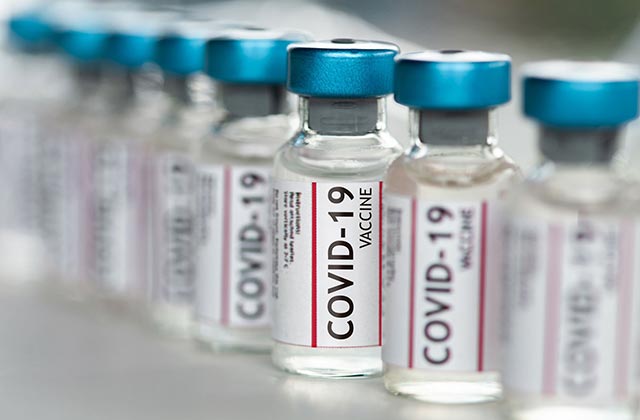Vaccination means protection. It is the most effective and safe way to protect your child from harmful, contagious diseases. Once your baby is exposed to these diseases, he or she is already protected by the immunity triggered by vaccines.
Vaccines contain pieces of dead, weakened or laboratory-made substances that have been administered to stimulate the immune system and prevent diseases.
The vaccine will harness your baby’s immune system to fight a disease that has not been experienced before by your little one. Vaccines are such powerful medicine as it works as prevention rather than a treatment.
Your baby may have mild reactions from vaccines. Reactions such as rash or pain at the injection site are normal. Fever sometimes can happen and your baby eats less during the 24 hours after vaccination. These are just normal and will soon go away on their own.
What you can do after your baby gets the vaccine is to put a cool, damp cloth at the injection site. This can help reduce swelling, redness or soreness of the affected part.
These reactions are minimal compared to the pain, discomfort, and trauma the vaccines are protecting your child from.
Here’s a list of routine childhood vaccines and the diseases they protect your baby from:
Varicella: Protects against Chickenpox
Polio: Protects against Polio
HepA: Protects against Hepatitis A
HepB: Protects against Hepatitis B
Hib: Protects against Haemophilus influenza type b
RV: Protects against Rotavirus
MMR: Protects against Measles, Mumps & Rubella
Flu: Protects against Influenza
PCV13: Protects against Pneumococcal disease
DTaP: Protects against Diphtheria, Tetanus & Pertussis
The vaccine for rotavirus is given orally and one type of influenza vaccine is sprayed into the nose. All the rest of the vaccines are given through injections.
It is important to keep track of your baby’s vaccination. During your first clinic visit, you will be given a vaccination record. It can be a card or a booklet that includes recommended vaccination schedules. Every time you visit a healthcare provider, it is important to bring this record with you. This is to ensure that the record can be updated each time your baby receives a vaccine.
1. Vaccination is safe and effective.
Vaccines are tested for the safety of the receivers from children to adults. Before getting approved for mass production, a vaccine is rigorously tested across multiple phases of trials. Scientists are also continually monitoring the effects of the vaccine from several sources for any sign of health risks.
2. Protecting the people you love that surround you and your baby.
After being vaccinated, your baby’s risk of infection against the disease is reduced. This also means it’s likely to transmit the bacteria or virus to others.
This principle goes the same for you and the community in general. As more people get vaccinated, fewer people remain vulnerable to risks. Lowering the possibility for a bacteria or virus to circulate in the community protects those who can’t be vaccinated due to health conditions.
As stated by the World Health Organization (WHO), her immunity is the indirect protection from an infectious disease that happens when immunity develops in a population through vaccination.
The risk of disease will keep falling if vaccination coverage continues to increase.
History has proven that herd immunity is an important attribute of vaccines against Hepa B, polio and numerous other diseases prevented by vaccines.
3. Vaccine saves your time and money.
Some diseases result in long-term health problems. They can cost you added bills for medication, take away your child’s time for school and your time for work.
Most vaccinations are covered by insurance, therefore getting your baby vaccinated at the right time will save you money and time for treatment and medication.
4. Vaccination can save your child’s life.
The advances in medical science make it happen to protect your child against more diseases than ever before. Due to safe and effective vaccines, some diseases that once infected and killed thousands of children in the past have been eradicated and others are close to extinction.
5. Immunization protects future generations.
Diseases that severely disabled and even killed people a few generations ago have been reduced and in some cases have been eliminated. One great achievement is the vaccine that eradicated smallpox worldwide.
Continuing vaccination now and vaccinating completely will lead to a future with some diseases of today will no longer be around to harm the people.
Your baby is vulnerable to diseases. The consequences can be very serious. And to protect him or her is getting vaccinated while her or she is still very young. That is why vaccines are given to babies in early life. It is important to note vaccines work best when they are given on time.
Vaccination is a lifelong process. For your baby to be fully protected, she must receive the vaccines at several stages. Some vaccines need to be given more than once to build up your baby’s immune system.
Schedules of vaccination could be different. It will depend on which province or territory you live in. You can find a doctor in a walk in clinic Calgary who can give you a vaccination schedule and can tell you which vaccines are needed by your baby. The doctor can also tell you at what age your baby must be to receive the types of vaccines.

